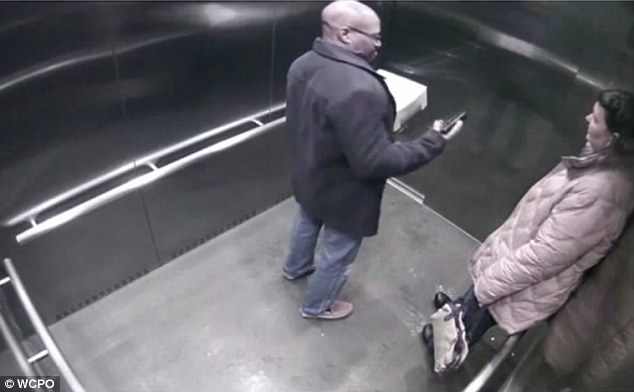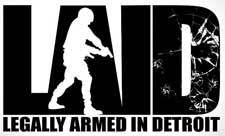By Rick Ector


Detroit, Michigan – -(Ammoland.com)- This past Friday, an off-duty KY police officer in an elevator eventually found himself as the subject of the latest gun story to go viral over the Internet. According to a report over at the Huffington Post, he allegedly caused an unintended discharge of his department issued .40 caliber semiautomatic pistol in which a bullet ricocheted inside the elevator and struck himself with a non life threatening injury to his stomach.
The incident has garnered a ton of media attention, especially in the gun community, because it involved a law enforcement officer. A pet position of some gun control advocates is that only members of the police force and the military should be allowed to possess guns because they are perceived to have more firearms training than the average citizen. However, as this story clearly illustrates, any person who fails to exercise due caution and care with a firearm can cause a negligent discharge. By default, it is clear that the officer violated some fundamental tenets of firearm safety.
The National Rifle Association’s (NRA) Three Safe Gun Handling Rules are the following:
- Always Keep Your Firearm Pointed In A Safe Direction
- Always Keep Your Finger Off The Trigger Until Ready To Shoot
- Always Keep Your Firearm Unloaded Until Ready For Use
A simple viewing of the video footage from a camera within the elevator appears to show the officer holding a package in his left hand while unholstering and subsequently trying to re-holster or conceal the firearm with his right hand. While he was attempting to conceal his firearm, he caused a negligent discharge. Apparently, he had first entertained the thought of hand carrying his gun to his car from the elevator and abruptly changed his mind.
The officer clearly violated two of the aforementioned NRA safe gun handling rules, as no direction in the tightly confined space inside the elevator was a “safe” direction and he failed to keep his finger off the trigger as he tried to conceal his gun. Had the officer only violated one of the rules, he would not have caused a negligent discharge. In the former case, he would not have drawn his gun in the first place. In the latter case, he would have kept his finger off the trigger of his drawn firearm.
Maybe if this officer had known of my three personal but unwritten rules of gun handling, he would not have caused a negligent discharge:
- Never Handle A Firearm Unless You Have A Good Reason.
- When Handling A Firearm, Give It Your Full Attention.
- Never Attempt To Catch A Falling Firearm.
If the officer had obeyed my first unwritten rule, he would have assessed whether it was a good idea to unholster his firearm within the small confines of an elevator. A little forethought could have seen him delay his decision to handle his gun until after exiting the elevator. After all, he could have caused an innocent person seeking to enter the elevator to have quite a scare at the sight of a gun being pointed at him. In the end, the officer probably second-guessed himself as feeling unduly paranoid for perceiving the need to hand carry his gun to his vehicle. Hence, he tried to quickly conceal it.
In addition, if the police officer had obeyed my second unwritten rule he would have given the task of handling the firearm his full and undivided attention. Instead of handling his gun with only one hand, he could have used both hands, if necessary. He could have either put the box that was in his left hand on the floor of the elevator or he could have given the box to his wife. A sense of over-confidence in his firearm handling skills was probably the factor that led to him insisting on only using one hand. A negligent discharge is the only proof I need to assert his gun handling ability is suspect.
Moreover, if the police officer had obeyed my third unwritten rule he would not have attempted to catch his firearm after he mishandled it. He should have let it hit the floor of the elevator. Modern firearms do not discharge when dropped. However, they may acquire cosmetic damage in the form of scratches or a front sight being knocked off the slide. Neither of which is worse than negligently pulling the trigger while trying to catch a falling gun.
We should treat this reported incident as a sobering reminder of the responsibility that is required of all persons – officers or not – while carrying and handling firearms. A negligent mishap can occur at any time someone fails to give firearms the due caution and attention they deserve. Carry your firearm every day but carry it both safely and responsibly.
About The Author
Rick Ector is a National Rifle Association credentialed Firearms Trainer, who provides Michigan CCW Class training in Detroit for students at his firearms school – Rick’s Firearm Academy of Detroit.
Ector is a recognized expert in firearm safety, a gun rights keynote speaker, and has been featured extensively in the national and local media: Associated Press, NRAnews, Gun Digest, The Politics Daily, Fox News Detroit, The Detroit News, Lock-N-Load Radio, WGPR and the UrbanShooterPodcast.
